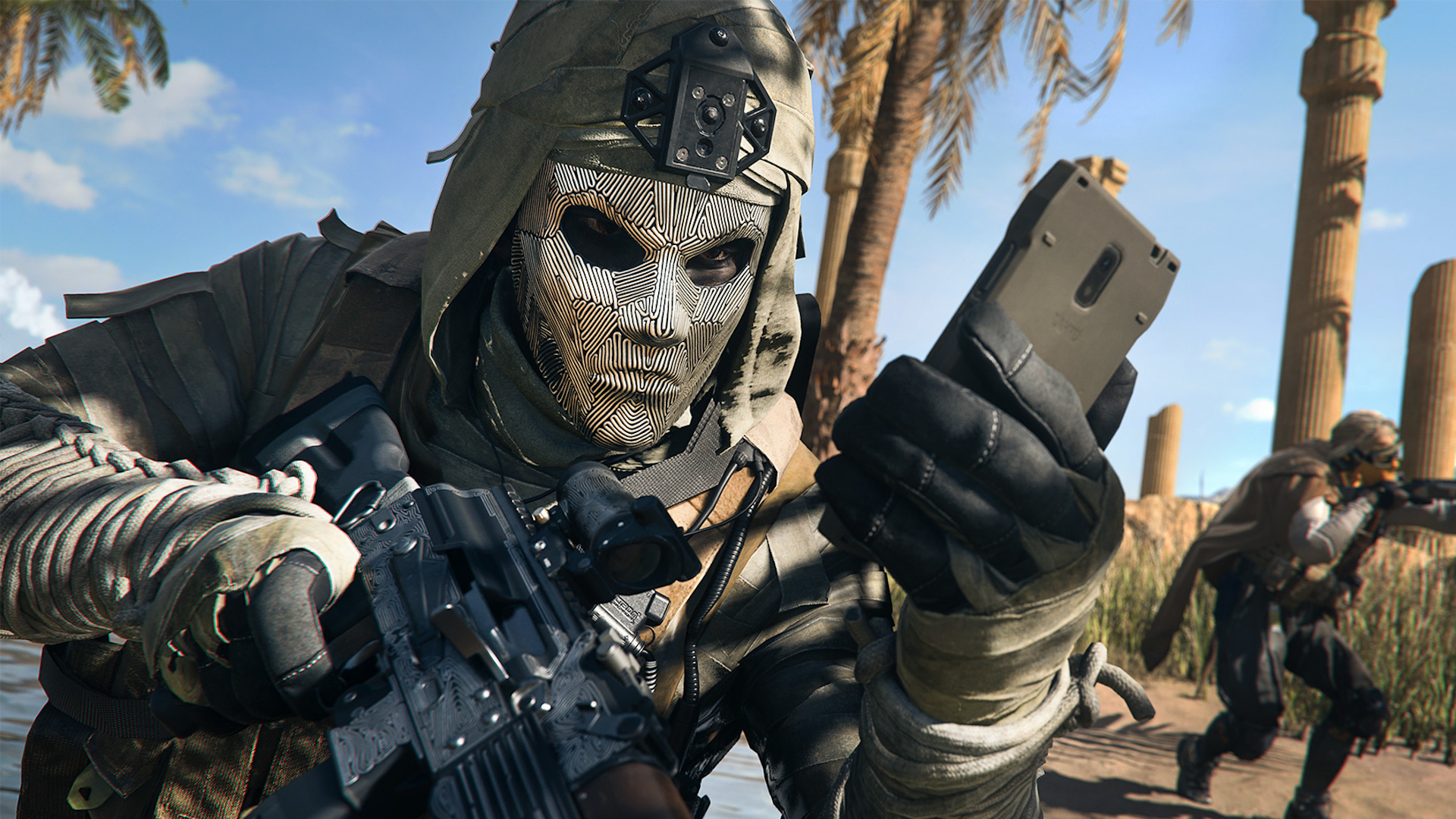Warzone 2 players like everything but the 'Microsoft Excel' looting
The new Warzone 2 system is a bit of a deathtrap.

Call of Duty: Warzone 2 is here and, of course, the white-hot anticipation has now turned to grousing. Partly this is just the way of the world, because Warzone 2 is attracting so many players there will always be something to complain about, and indeed one of the difficulties in covering the original was working out what were genuine issues and what was just players having a moan.
Warzone 2 loadouts: Best guns
Warzone 2 DMZ: New mode guide
Warzone 2 unhinged: Hectic BRs
Warzone 2 perks: Perk packages
Warzone 2 contracts: Turn it in
Warzone 2 cash: Make bank
I spent several hours running around in the DMZ mode last night, and there's one complaint I keep seeing that's exactly in-line with my limited experience. Warzone 2 is a looter-shooter, whether you're playing in the usual way or DMZ. Everything about how this game controls is as slick as FPS design gets: movement feels amazing, navigation is a breeze, and the combat's intense, brutal and precise. It's an absolute joy in the hands.
Then… you get to the looting part. The most irritating aspect of the DMZ mode early doors is that you have a tiny backpack, so will often end up swapping items in and out, but the wider problem here is that the looting interface is a real clunker. Items lie flat on the ground, you have to squint to read multiple text descriptions, get your cursor exactly right over the thing you want to pick up, and sorting through your inventory… forget about it, unless you find a nearby toilet to hole-up in.
As one player put it, looting in Warzone 2 "feels more like using Microsoft Excel than playing a videogame."
There's huge similarities to PUBG here, and a step back from Warzone's super-fast looting. This is a system that wants to make looting dangerous, and it certainly has done that, but it feels like the baby may have been thrown out with the bathwater.
Here's one player demonstrating how not to loot a backpack.
Balancing risk and reward is at the heart of Warzone 2 but, right now, the loot system feels like a bit of a step back. I do have fond memories of tossing down smokes in order to try and loot in PUBG, but that game has a whole different pace to Warzone 2.
Keep up to date with the most important stories and the best deals, as picked by the PC Gamer team.
You can from one side see why Infinity Ward's trying this. Part of Tarkov's magic, which is the big inspiration for DMZ, is that looting is probably the most dangerous thing you can do: it leaves you completely exposed, a sitting duck for other players, and is an incredibly frustrating way to die. Parts of how Warzone 2 is doing this seem to be an echo of that, with your inability to look around, the slow piece-by-piece acquisition of items, and the way it turns a hyper-octane fragfest into a stationary inventory management game.
But it's not all that fun. In the launch maelstrom, there are complaints coming and going about nearly every aspect of the game: for me, this is the one that lands.. "The general looting interface is horrible," writes RedSkinFan654. "Like even just picking something up leaves the name of the item in the middle of your screen right where the name of the ground item is. If you pick up like 3 things, it’s just a cluster fuck of words."
Looting is the one area of Warzone 2 that doesn't feel right, the only times while playing that I find myself getting annoyed at the game for making me cycle through tiny icons and swap low-value rubbish around when all I really want to do is get back in the fight. Going by the fan chatter thus far, I'm far from alone.

Rich is a games journalist with 15 years' experience, beginning his career on Edge magazine before working for a wide range of outlets, including Ars Technica, Eurogamer, GamesRadar+, Gamespot, the Guardian, IGN, the New Statesman, Polygon, and Vice. He was the editor of Kotaku UK, the UK arm of Kotaku, for three years before joining PC Gamer. He is the author of a Brief History of Video Games, a full history of the medium, which the Midwest Book Review described as "[a] must-read for serious minded game historians and curious video game connoisseurs alike."

